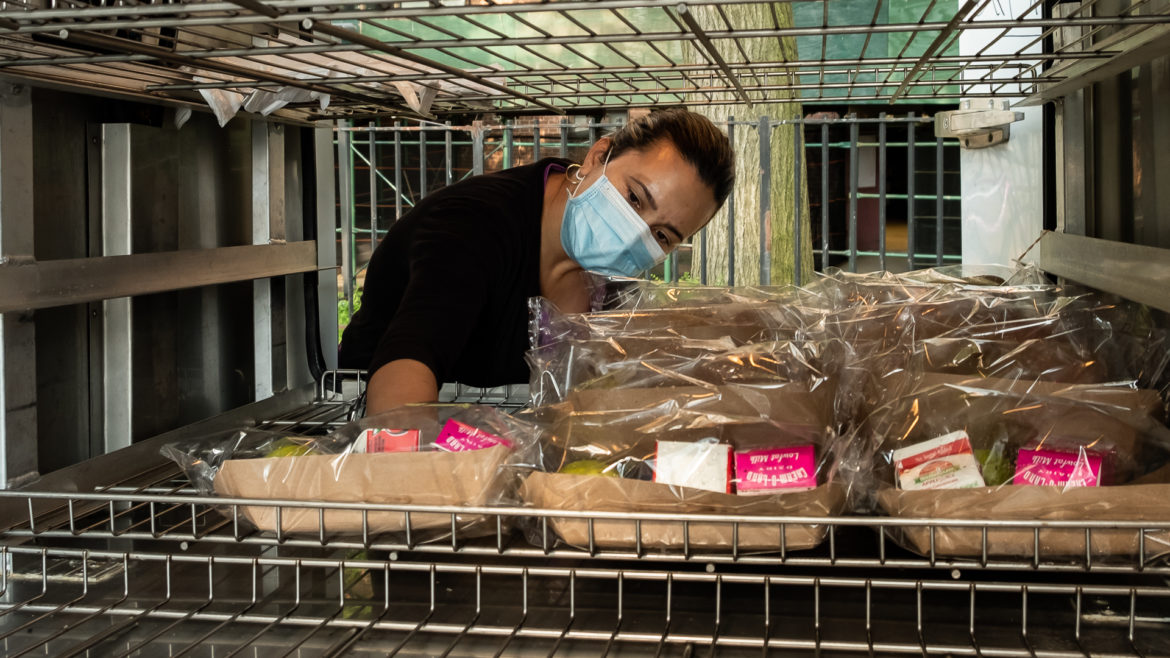Age Justice
Senior Services Start to Feel the Pain of City’s Budget Cut
Roshan Abraham |
The 2021 left out $15 million in previously promised money, and advocates are just now getting a look at what the reduced funds will mean.

Adi Talwar
On a recent Wednesday morning in the Forest Hills neighborhood of New York City. Queens Community House's Ms. Ruby Tamayo seen here loading a meal delivery van. Queens Community House delivers meals daily to over 900 clients, five days a week.
The 2021 left out $15 million in previously promised money, and advocates are just now getting a look at what the reduced funds will mean.
Providers expressed frustration with the Department For The Aging (DFTA) and the mayor’s office, who they say made abrupt changes with little input from the aging services sector.
New enrollees in NYC’s home-delivered meals program for seniors are being diverted to the city’s emergency food program—which advocates say doesn’t deliver the same quality or support.
Cleaning is now being done in earnest, residents say, but delays in basic maintenance have been the norm for years.
A series of far-reaching changes to NY state’s long-term care programs will limit enrollment in a program that is meant to give people with disabilities independence and which allows seniors to age at home.
Senior center directors have been thinking of ways to help seniors cope, to prevent residents from becoming too socially isolated and depressed.
Department for the Aging is being criticized by providers and some advocates for adding an array of new requirements to its program without additional funding.
The city uses a patchwork of social services and subsidies to keep elders aging in place, but they can be difficult to qualify for and their funds are limited.
It is unclear who is on the governor’s task force to redesign Medicaid (again), or exactly what is driving the cost spike that created a multibillion-dollar budget gap.
Responding to a budget gap driven largely by Medicaid costs, the governor and mayor are both proposing spending plans that ask more of or do less for seniors.